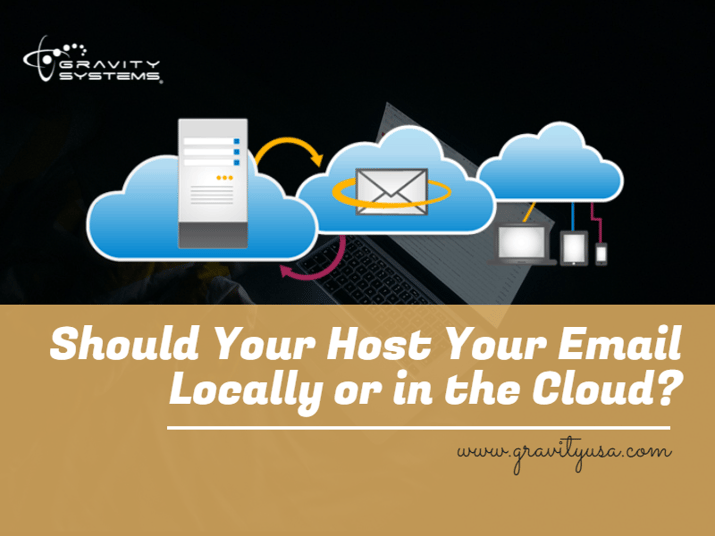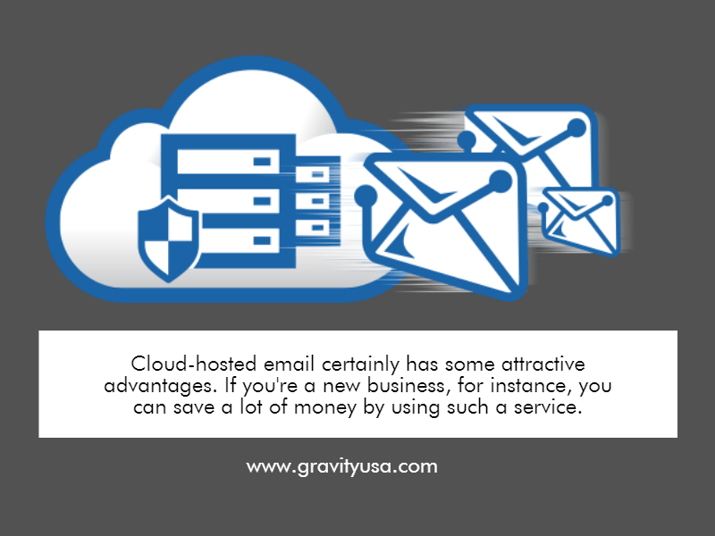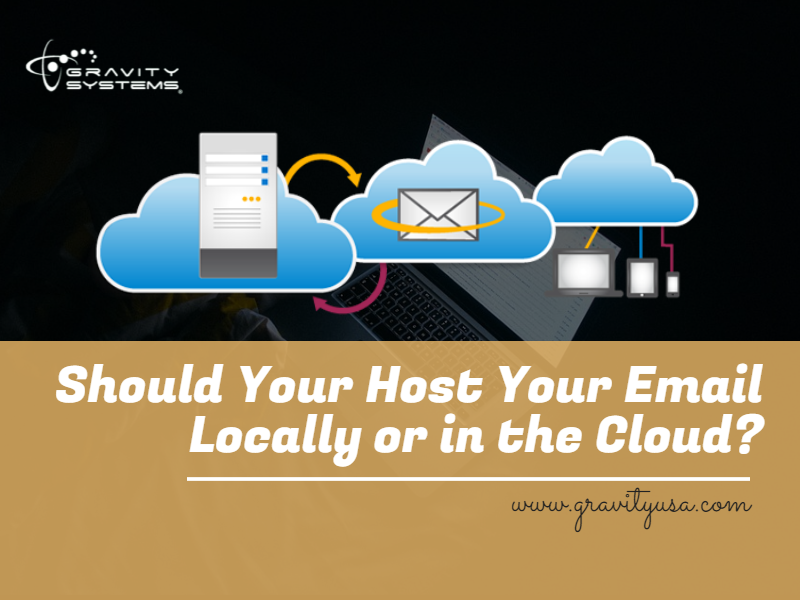
Email has come a long way from its primitive origins, including the evolution of cloud-based email systems. But does that mean your business should give up local email hosting for cloud email hosting? Not necessarily.
Cloud-hosted email certainly has some attractive advantages. If you're a new business, for instance, you can save a lot of money by using such a service. By relying on these providers' remote storage and functionality, you don't have to purchase the on-site hardware, software and server exchange infrastructure necessary to host and run a local email system. You'll also have the reassurance that your team can continue to make use of their email accounts even if your facility loses power or Internet connectivity, because they can access those accounts via mobile devices or remote locations with ease. It's also easy to scale your email usage up or down by simply adding or deleting accounts.
As great as these benefits sound, however, they could still be outweighed by other considerations. For instance, you have to take economy of scale into account. While smaller organizations may benefit from not having to purchase and maintain a local setup, once you get past the 100-employee mark, you may decide that you really need the extra control, power and flexibility of an integrated, full-featured local hosting solution.

Security concerns may also make local email hosting the only viable option for your organization. If you're in an industry where privacy and security of information is paramount, your employees might not even be allowed to view their email accounts (or any other proprietary data) outside the facility, which pretty much nullifies the cloud's “anywhere access” selling point.
The issue of cloud email vs. local email hosting isn't as clear-cut as you might think. If you have questions, don't hesitate to ask us!
Related Post: 5 Common Mistakes When Choosing a Managed Services Provider




